
Related
Guests
- Scott Hortonhuman rights attorney and contributing editor at Harper’s Magazine. He is also a lecturer at Columbia Law School. He is the author of the forthcoming book, The Lords of Secrecy: The National Security Elite and America’s Stealth Foreign Policy.
The Obama administration says it will release the secret government memo that authorizes the killings of Americans overseas. A federal appeals court ordered the memo’s disclosure last month following a lawsuit by the American Civil Liberties Union and The New York Times seeking the drone strikes’ legal basis. The lawsuit came after the U.S. killed the American-born cleric Anwar al-Awlaki, his 16-year-old son Abdulrahman, and Samir Khan in Yemen, despite having never charged any of them with a crime. The White House decided not to appeal the ruling after several senators vowed to hold up a judicial nomination of the memo’s author, David Barron. But the memo’s release will be delayed as the administration redacts extensive portions it says contain classified information. We get reaction from Scott Horton, a human rights attorney and contributing editor at Harper’s Magazine.
Transcript
AMY GOODMAN: But we also want to take on one more issue, and that is the issue of the Obama administration officials saying that the Justice Department will finally reveal part of the contents of a secret memo that authorizes the assassinations of Americans overseas. A federal appeals court ordered the memo’s disclosure last month following a lawsuit by the American Civil Liberties Union and The New York Times seeking the legal basis for drone strikes, the lawsuit coming after the U.S. killed the American-born cleric Anwar al-Awlaki, his Denver-born 16-year-old son Abdulrahman, as well as Samir Khan, all in Yemen, despite having never charged any of them with a crime. The administration’s decision not to appeal the ruling came just days after Senator Republican—Republican Senator Rand Paul threatened to filibuster the nomination of the memo’s author, David Barron, to a seat on the U.S. Court of Appeals of the First Circuit, Barron’s nomination expected to come up for a vote this week. Paul said, “There is no valid legal precedent to justify the killing of an American citizen not engaged in combat.” So there’s a real battle going on in the Senate right now. Talk about the significance of the Obama administration not appealing the court decision.
SCOTT HORTON: Well, I think it’s significant on several different points. I mean, one is, the decision of the Second Circuit, written by one of the most famous appeals court judges, Jon O. Newman, basically took the government to task for its attitude toward secrecy. It said the government is keeping this memo secret, but at the same time government officials are going before college audiences and talking about this in detail, the DOJ is releasing a detailed white paper. You can’t have it both ways. Either it’s secret, or it’s in the public sector and it can be discussed. So, I think there was this fundamental criticism which packs great weight.
The second major point really has to do with David Barron, you know, an important figure. I think a lot of people are critical of his decision, particularly his opinion on Anwar al-Awlaki. But I think there are very few people who wouldn’t agree that he is one of the towering scholars of his generation, particularly in this area. I think that judicial appointment is a particularly important one.
AMY GOODMAN: Marcy Wheeler’s headline was “Obama to Release OLC Memo After Only 24 Congressional Requests from 31 Members of Congress.” We’re talking Democrats and Republicans.
SCOTT HORTON: But in the end, it shows that holding nominees hostage is a tactic that works that can force these sorts of materials out into the public. This is the Washington way.
AMY GOODMAN: And what you expect to see?
SCOTT HORTON: I expect to see a much clearer explanation of the rationale, legal rationale. Probably we’re going to see that the CIA was authorized to execute al-Awlaki, and therefore he was—it was viewed as being outside of the restrictions on murder overseas.
AMY GOODMAN: We want to thank you, Scott Horton, for being with us, human rights attorney, contributing editor at Harper’s Magazine, also lecturer at Columbia Law School. Latest piece, we’ll link to at Harper’s, “The Guantanamo 'Suicides' Revisited”—”suicides” in quotes. Also the author of the forthcoming book, The Lords of Secrecy: The National Security Elite and America’s Stealth Foreign Policy.
When we come back, what’s the film that Republican legislators in Washington tried to stop from being screened? We’ll be joined by the director. Stay with this.


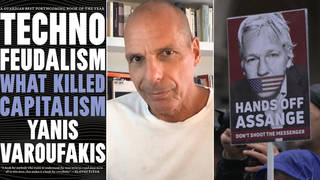
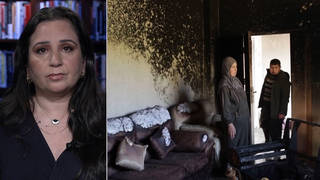
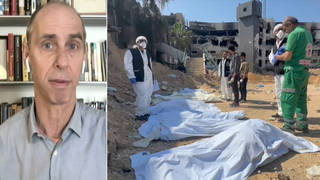





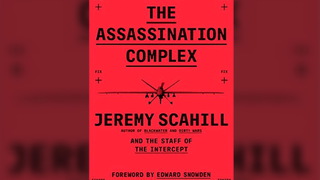
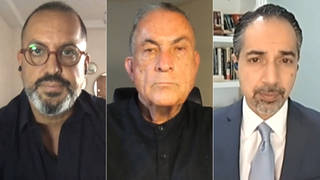
Media Options